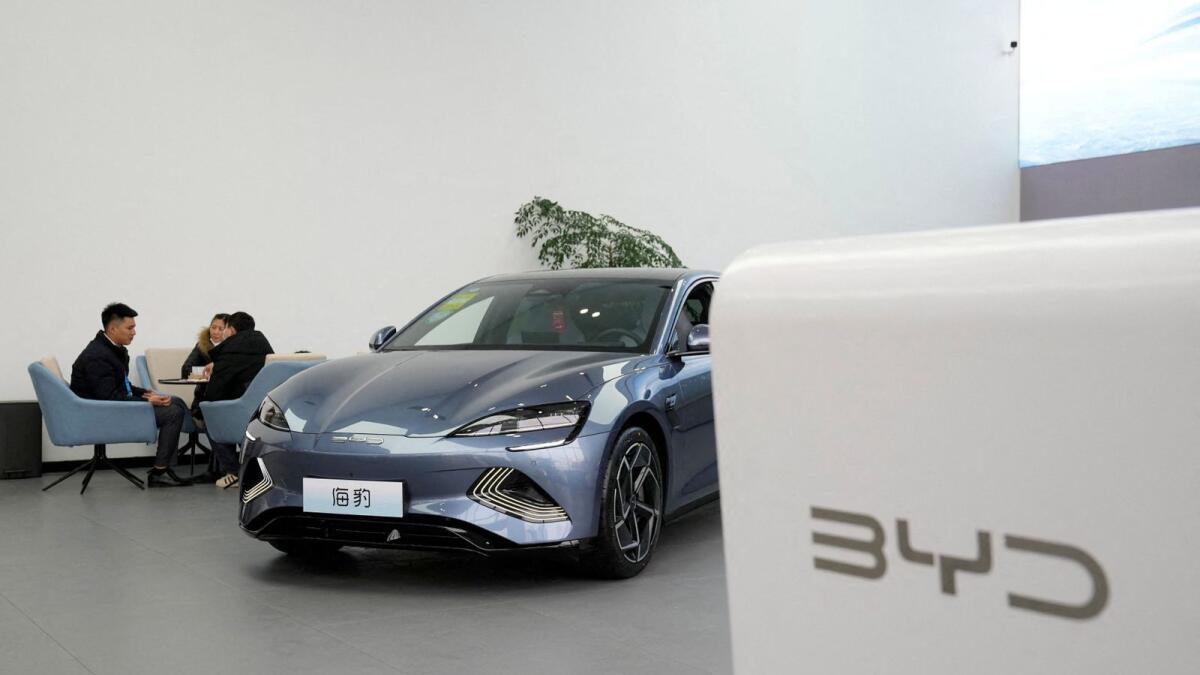The European Union’s trade chief Valdis Dombrovskis recently had a “constructive” meeting with China’s commerce minister Wang Wentao regarding potential tariffs on imported electric vehicles (EVs) from China. This meeting comes as there is a growing divide in Europe over the proposed tariffs, with Spain and Germany expressing opposition to duties of up to 36 percent on Chinese EVs. Both sides agreed to intensify efforts to find a solution that is effective, enforceable, and WTO compatible.
Wang also engaged with businesses in the EV sector in Brussels and stated that China is committed to enduring the consultations until the final moments. The European Commission announced plans in July to impose import duties on Chinese EVs after an anti-subsidy investigation found that they were unfairly undercutting European competitors. The EU aims to protect its automobile industry, which is a significant employer supporting around 14 million people. The tariffs are currently provisional and will only become definitive after a vote by member states expected to take place before the end of October.
China has strongly opposed the EU’s plans, warning of a potential trade war and filing an appeal with the World Trade Organization (WTO) last month. In retaliation, Beijing has initiated investigations into European brandy, dairy, and pork products imported into China. Dombrovskis has denounced these investigations as unwarranted and lacking sufficient evidence, urging China to terminate them and assuring that the EU will defend the interests of its industries.
The EU-China trade dispute is significant as both regions are major players in the global EV market. The EU aims to level the playing field and ensure fair competition in its automobile industry, which is crucial for its economy. While tariffs are a common tool used to protect domestic industries, they can also escalate tensions and lead to retaliatory measures. Both sides are seeking a resolution that is agreeable and compliant with international trade rules to avoid further conflict.
The outcome of the EU-China negotiations on EV tariffs will have implications not only for the automobile industry but also for the broader trade relations between the two economic powerhouses. Finding a middle ground that satisfies both parties will be crucial for maintaining stability in the global market, especially in the growing EV sector. The pressure is on to reach a mutually beneficial solution that respects the interests of all stakeholders involved in the trade dispute.
As the deadline for the definitive imposition of tariffs approaches, both the EU and China are working towards a resolution that addresses concerns while avoiding an escalation of tensions. The EU’s commitment to defending its industries, coupled with China’s pushback against what it perceives as unjust trade practices, sets the stage for intense negotiations in the coming weeks. The outcome of these negotiations will not only impact the EV market but also set a precedent for future trade disputes between the EU and China.











